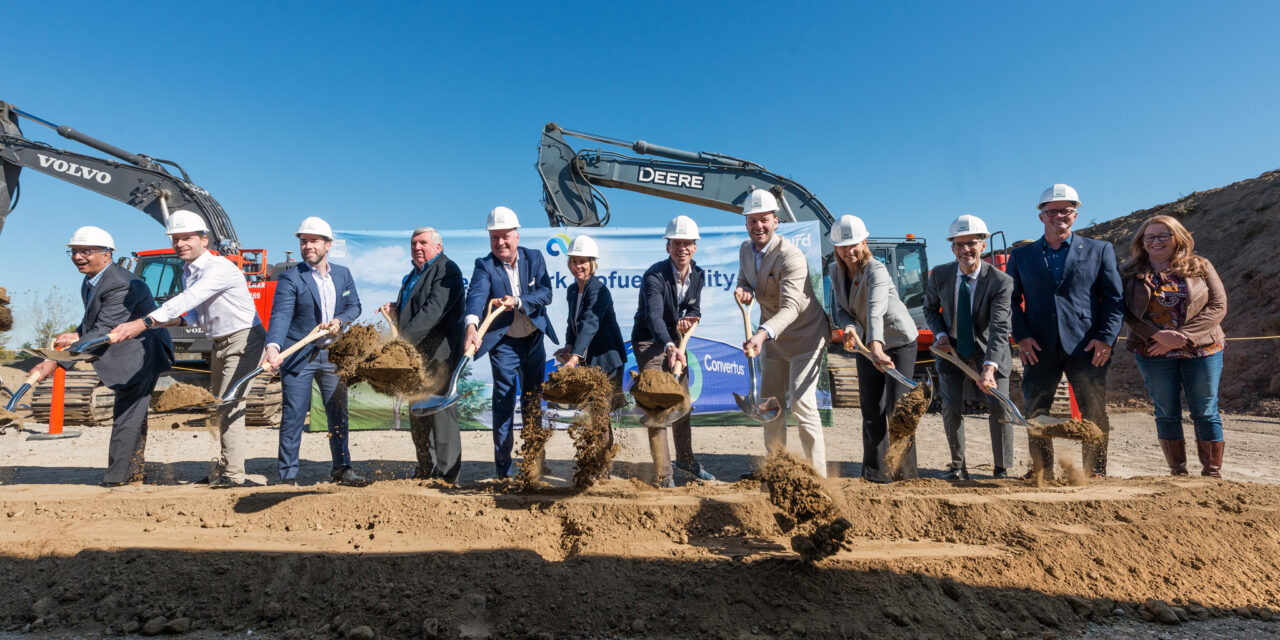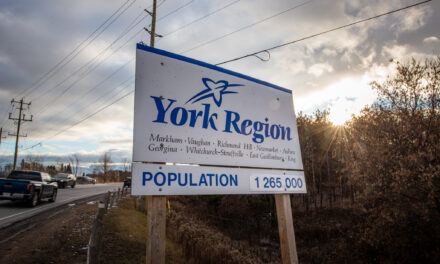- Convertus Group has broken ground on a new organic waste processing and biogas facility in East Gwillimbury.
- The plant is part of a $490 million contract with York Region to process up to 140,000 tonnes of organic green bin materials annually.
- The transition to local processing is projected to save the Region $85 million compared to existing waste processing contracts.
- Biogas capture and shorter waste transfer distances are expected to reduce greenhouse gas emissions by up to 15,000 tonnes per year.
- Collected biogas will be converted to natural gas and injected into the existing gas grid.
- Operations are scheduled to begin in early 2027.
In January 2023, York Regional Council approved a $490 million, 20-year contract with Convertus Group for organic waste processing services. The new facility will handle up to 140,000 tonnes of the region’s organic waste annually, meeting all of York Region’s processing needs through 2047.
Convertus is Canada’s largest organic waste operator, with facilities across the country and one in Maine. The company processes over 500,000 tonnes of organic waste each year.
“We are proud to be the only organic waste processor in North America offering full cycle services,” said Convertus CEO Michael Leopold. “This means that we are able to design, build, operate, maintain, and service biofuel facilities like this.”
The new processing centre will be located next to the Region’s Material Recovery and Transfer Facility in East Gwillimbury, northeast of Davis Drive and Woodbine Avenue. A groundbreaking ceremony was held on October 18, 2024.
“With our population rapidly growing and expected to surpass two million residents by 2051, we are consistently producing more waste every year,” York Region Chairman Wayne Emmerson said in his remarks. “This new, state-of-the-art biofuel facility, owned and operated by Convertus, is a crucial step in sustainability…This project is more than just waste management, it’s about building a greener and more sustainable future.”
Today, over 100,000 tonnes of green bin material are picked up annually from more than 390,000 York Region households. Depending on its origin, the waste is taken to one of two collection locations: 25% to the existing East Gwillimbury site and 75% to the Earl Turcott Waste Management Facility in Markham.
The organic waste is then loaded onto long-haul tractor-trailers, which transport it to processing centres in London, Moose Creek, Elmira, and Leamington. Current contracts with processing operators GFL, Cornerstone Renewables, and Convertus will expire in June 2027.
According to Lindsay Milne, York Region’s Waste Management and Forestry Director, this process can see green bin material travelling as far as 440 kilometres before reaching its final processing destination.
Once Convertus’s contract begins, the 25% of green bin collections delivered to East Gwillimbury will go directly to the new processing centre. Convertus will also retrieve the 75% delivered to Markham, resulting in much shorter overall transportation distances.
“With this new facility, we can manage our own green bin material within our borders, eliminating the need to ship this material over great distances and reducing greenhouse gas emissions,” Milne explained during a 2023 community consultation meeting.
Transitioning to the new 20-year Convertus agreement is expected to save the region $85 million, marking a 15% reduction over current processing costs. The savings include approximately $600,000 annually in waste transfer expenses. York Region hopes the new facility will reduce carbon dioxide emissions by 15,000 tonnes per year.
Convertus will also employ anaerobic digestion to process waste, which reduces emissions compared to the aerobic methods predominantly used by the Region’s current contractors. Anaerobic digestion also produces biogas as organic material breaks down, which will be captured and converted to natural gas.
The facility will generate 250,000 to 350,000 gigajoules of natural gas annually—enough to heat up to 5,000 homes. In partnership with Enbridge, the gas will be injected into the existing natural gas grid. Convertus will also produce fertilizer as a processing byproduct, and plans are in place to see it sold to local farms.
“By partnering with York Region, we’re creating a facility that not only meets today’s needs but sets a new standard for sustainability in Ontario,” Leopold added. “Together, we are not just making a difference in waste diversion but leading the way toward a cleaner, more circular economy.”
Tej Gidda, Global Leader of Future Energy at technical professional services firm GHD, helped with the design and permitting of Convertus’s new location. Speaking at the groundbreaking, he described the project as a climate-positive story and noted the progression of the organic waste industry over his 20 years in the sector.
“The field has really evolved. When I started, I don’t think you would believe what we’re doing with organics today,” he said. “We’re at a point where we’re making fertilizers and renewable energy out of the material that used to end up in landfills.”
“In my estimation, this is the largest facility of its kind in Canadian history…It’s also, in my estimation, the most advanced facility of its kind in Canadian history,” Gidda added. “This makes us a model for other facilities that need to come.”
Stouffville’s green bin waste will be transported directly to the new plant, and Mayor Iain Lovatt also attended the event. He recently travelled with other York Region representatives to visit Convertus’s flagship operations in Surrey, B.C.
“It was important for us to see their plant in action and fully understand the biodiversion process. We were also pleased to learn that there were no negative odours impacting the surrounding community,” Lovatt told Bullet Point News. “This groundbreaking marks an important step forward for York Region in reaching our environmental sustainability goals.”





